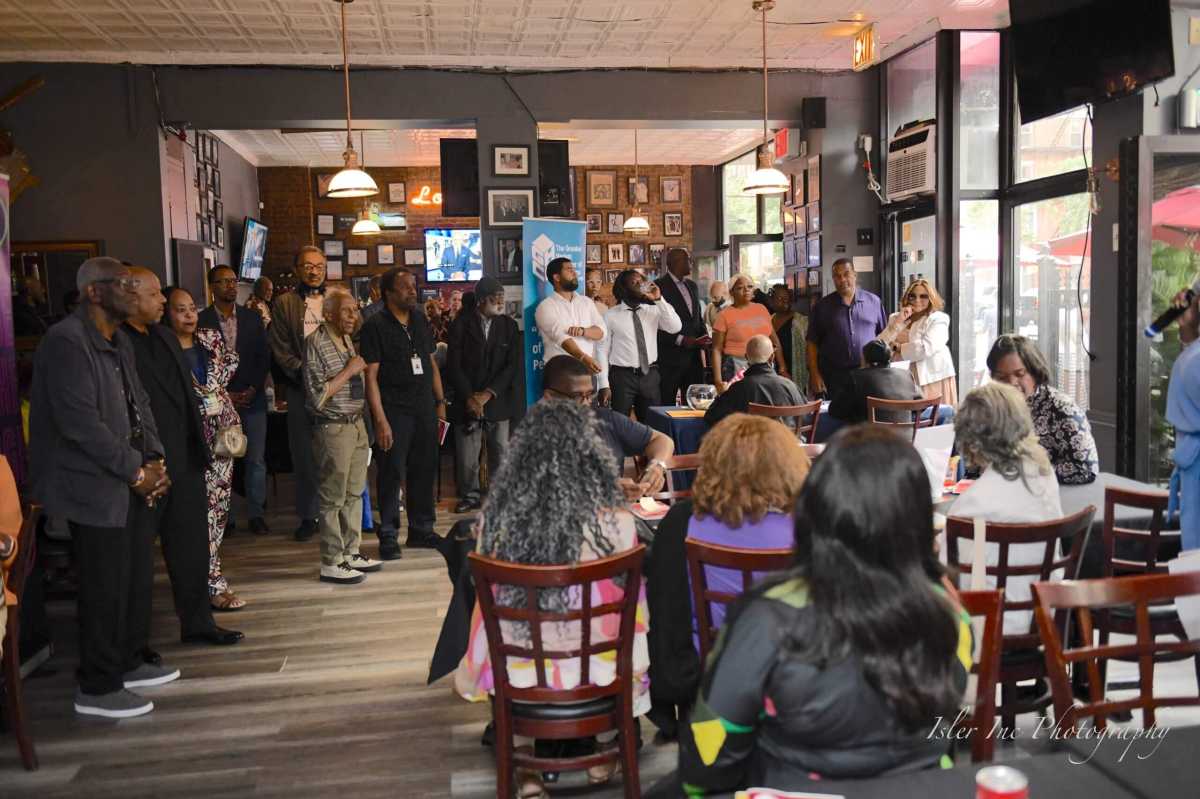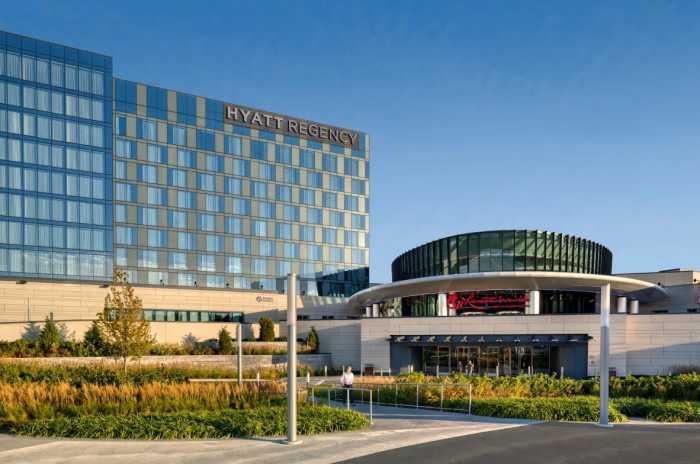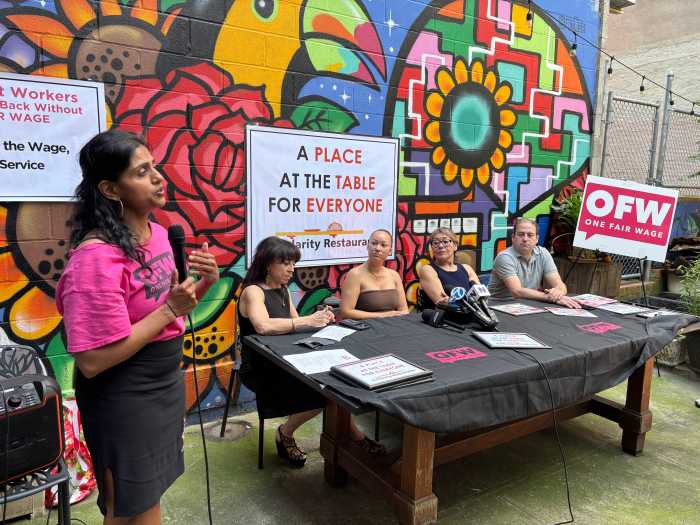Established in 1896 and now one of the longest active Chambers of Commerce in the world, the Greater Harlem Chamber of Commerce celebrated its 125th year of service to the community earlier this year.
The festivities took place back in February, though the actual anniversary itself arrived in 2021; the COVID-19 pandemic had delayed the celebrations until this year.
Nevertheless, the anniversary gala was heavy with snapshots of Harlem in different eras: The Apollo Theater, famous Harlemites, Ella Fitzgerald and Duke Ellington at The Savoy Ballroom, Dwight Eisenhower who would become Columbia University’s president, Al Pacino in “The Godfather,” Julius “Dr. J” Irving at Rucker Park, former Presidents Barack Obama and Bill Clinton meeting with the chamber in Harlem.
The gala featured decorated honorees, including Columbia University president Lee Bollinger, NAACP New York State Conference President Dr. Hazel N. Dukes, former Congressman Charlie Rangel, the Schomburg Center for Research in Black Culture, Jekmar Associates President Louis Katos and Manna’s Restaurant Owner “Chef” Betty Park.
There has been much to celebrate in recent times and amNewYork Metro sat down with Greater Harlem Chamber of Commerce President Lloyd Williams to catch up on several topics: the new Renaissance Hotel on 125th Street, International Taste of Harlem, Harlem Week, and what it means to Williams to lead the Greater Harlem Chamber of Commerce past 125 years of serving the greater Harlem area.
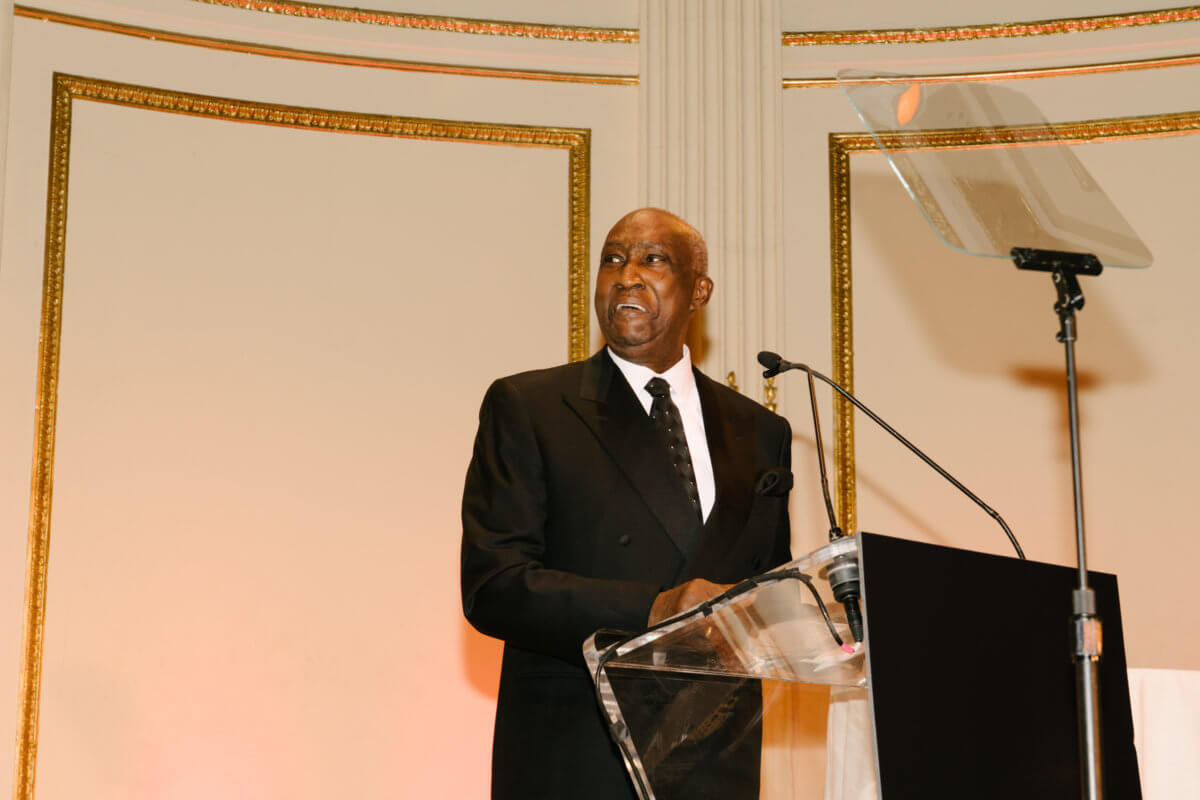
amNewYork Metro: There are several new and upcoming developments for the 125th Street business district, including the Renaissance New York Harlem hotel on 125th Street, which held its soft opening on Aug. 26 and will celebrate its grand opening on Oct. 20. Could you share more about the developments and what they will bring to the area?
Williams: I’m much excited. The Renaissance project is really multiple things happening. There is a 200-plus room hotel at the Renaissance, as part of the Marriott chain. It brings another type of excitement to the neighborhood to 125th Street, which is known as a commercial and retail heart of Harlem. It’s one of the best things that could have happened in a long time. I’m sure it’s going to do gangbusters business, and it will bring another source of income to the Central Harlem district as people from around the world come and stay at that hotel.
There are about four major hotel chains that are coming to the area between 96th Street and 168th Street.
In addition to that, there are two theaters at the (Apollo’s Victoria Theater). One is a 99-seat black box theater and the other is a 199-seat black box theater. Both of those theaters are going to be managed and operated by the Apollo Theater, which is just literally about 120 feet away from the base of the Victoria (Theater) project. In addition, they will also have a ballroom which is very important to Harlem, because Harlem has always been famous for its multiple ballrooms and places for weddings and galas and special events and activities.
It’s located on the base of what used to be a fabulous movie house called the Loew’s Victoria (Theatre), which was one of those iconic movie houses and vaudeville houses on 125th Street. There’ll be 100 units of affordable housing.
They also have two cultural organizations in addition to the Apollo Theater. The Apollo Theater’s administrative space will move from where it used to be at the Apollo Theater to the Victoria (Theater) project and the Apollo will now utilize that administrative space and build that out for some new rehearsal and event spaces at the old Apollo Theater.
About half a block away on 125th Street between Adam C. Powell Boulevard and Malcolm X Boulevard, known to many as Seventh Avenue and Lenox Avenue, there are two major developments there taking place. One is the new home for the Studio Museum in Harlem, which is under construction and a fantastic home for art. That will open up sometime next year.
In addition, the National Urban League will have its headquarters a half a block away and that will also have about 175 units of affordable housing, but will be a major commercial retail hub and headquarters for one of the most important, renowned civil rights organizations in the nation.
amNewYork Metro: Tell me about the upcoming International Taste of Harlem dining program planned for October.
Williams: When many people think of Harlem, who don’t really know the history of Harlem, think oftentimes of “soul food.” When they think of soul food, they think of Southern cuisines, whether it is spare ribs or fried chicken. Certainly there is that but what they don’t understand is there are Japanese, Indian, Cuban, Italian, Dominican, Chinese, and vegetarian restaurants. We could go on and on.
What we’re going to be doing is focusing on the international aspects. We have a very outstanding committee of well-known people in the food industry who have Harlem roots: Tim Zagat, from the world famous Zagat food guide; Marcus Samuelsson, one of the best-known chefs from many of the food channels, who has the Red Rooster restaurant in Harlem; Kenneth Woods, the president of Sylvia’s; Melba Wilson from the famous Melba’s restaurant; and Betty Park, a Korean chef who has the Manna’s restaurants.
We’re bringing together 30 restaurants and eateries. We have Lee Lee’s, a baker in Harlem famous for his rugelach; Patsy’s restaurant that is renowned for its pizza in East Harlem; Charles Pan-Fried Chicken; Make My Cake; Raven the baker; Oso.
amNewYork Metro: How was Harlem Week this year and what do you have planned for Harlem Week’s 50th anniversary next year? (“Stay tuned and standby” is all Williams shared about next year’s Harlem Week.)
Williams: This year our theme was “Be The Change. Hope. Joy. Love.” It was the biggest Harlem Week we’ve ever had. One of the things that is key to us, is we did between 100 different events and activities, whether they were conferences, workshops, jobs and career fairs, fashion shows.
Our three major days always remain the same. It’s always the “Great Day in Harlem” on the second Sunday in August. This year we did a tribute to Tina Turner, who recently passed and had performed during Harlem Week and encouraged us an awful lot. Our second major day is called Summer in the City, which takes place on the third Saturday of August. We did a salute to the 50th anniversary of Hip-hop and we had people like MC Lyte and DMC from Run-DMC. And then on the next day, which is our last major day of Harlem Week, the third Sunday, and that is called Harlem Day. It’s a family reunion. We had four stages of entertainment from Fifth Avenue to St. Nicholas Avenue on West 135th Street. This year, the tribute was to the legacy of Harry Belafonte, who was one of our founders and always a strong supporter. Harry Belafonte was born on 135th Street at Harlem Hospital and stared his acting on 135th Street with the American Negro Theatre Company.
Harlem Week has done a lot to help promote the positive. A lot of artists have performed during Harlem Week with us: Frank Sinatra; Ray Charles; Richard Pryor; Janet Jackson; Alicia Keys; James Brown; Tito Puente; John Legend; The Temptations; Prince; Dizzy Gillespie; Gladys Knight; Kirk Franklin; Boyz II Men; and Doug E. Fresh. We’ve been fortunate to have these people come and want to identify with Harlem.
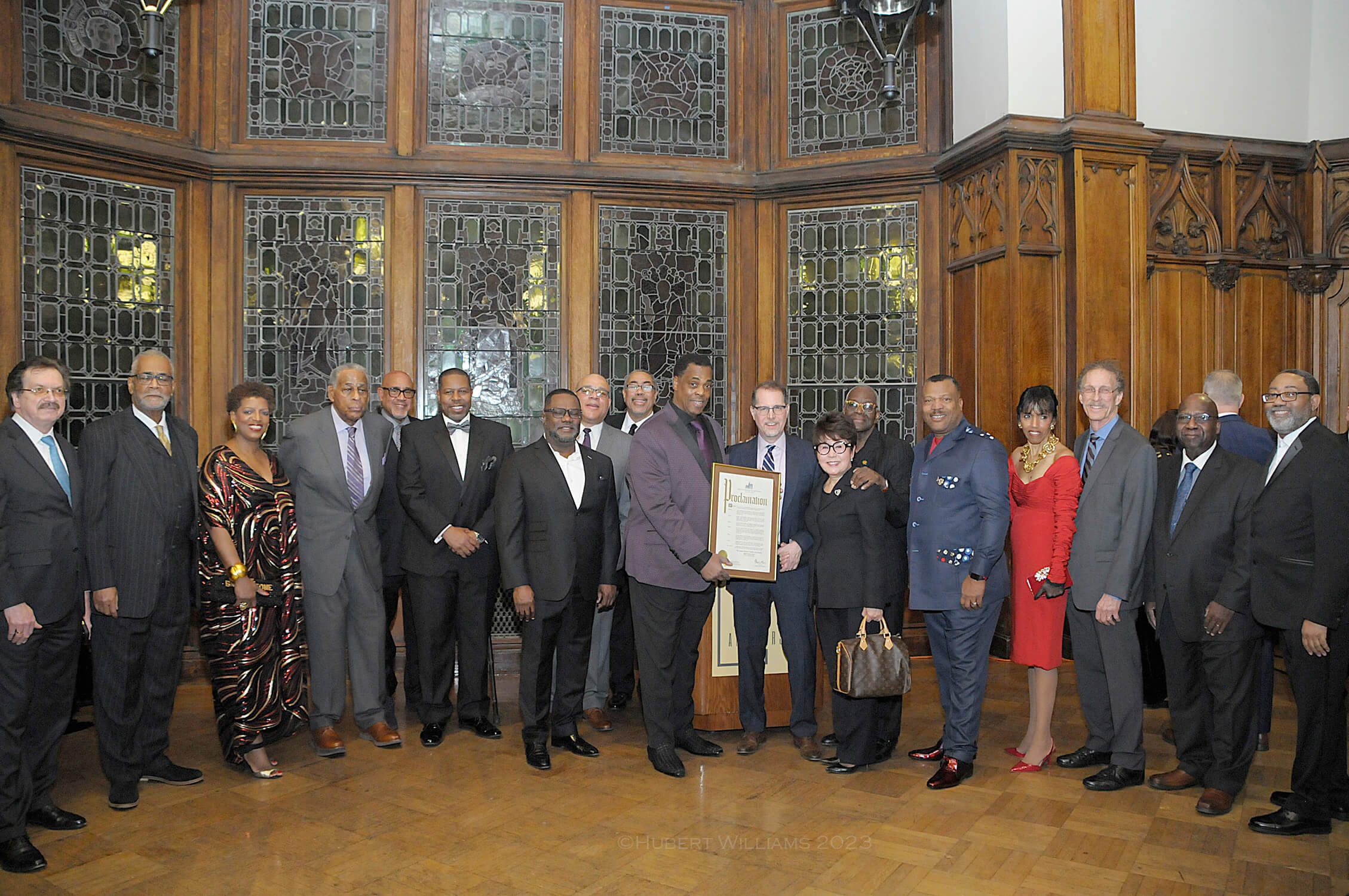
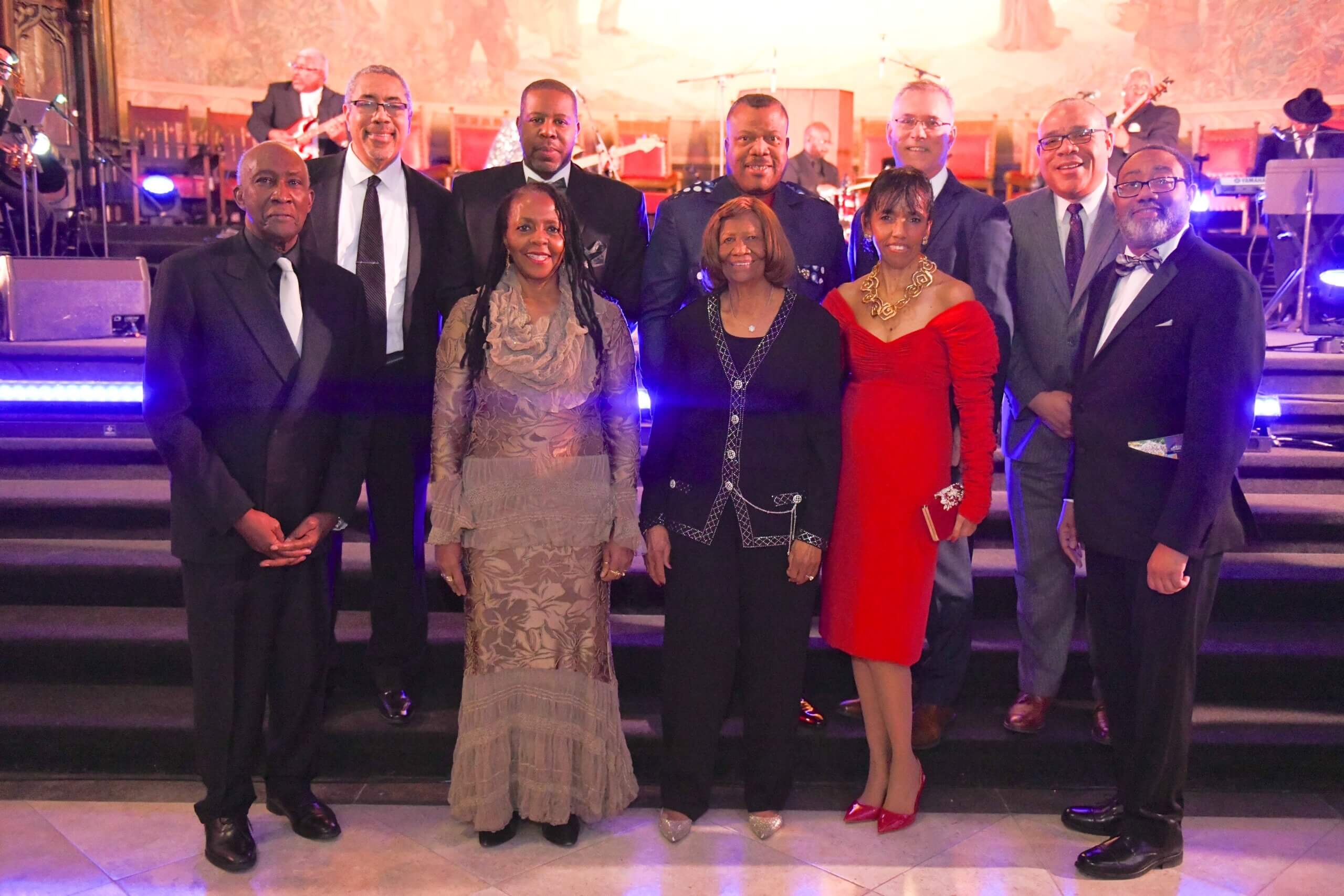
amNewYork Metro: What does the 125th anniversary of the Greater Harlem Chamber of Commerce mean to you? What is an example of what the Chamber has done for the neighborhood?
Williams: We are this year celebrating the 125th anniversary of the Chamber and as you can well imagine, there have been massive changes in the greater Harlem area over the past 125 years. When we think about the greater Harlem area, we talk about a four-community area, which consists of East Harlem, Central Harlem, West Harlem, and lower Washington Heights going from 96th Street to 68th Street from (East) River to (Hudson) River.
Because of the renaissance and renovation — the second Harlem Renaissance — people are increasingly wanting to identify by being listed as being a part of Harlem now. We’re happy for all of that.
Over the last 40 years, the perception is constantly changing. Now there are new hotels and new cultural facilities in Harlem. Harlem is the place to be; Harlem is hot.
What we do need to do is make sure that we are not attracting people with significant disposable incomes. The victims of that become the people who have weathered the storm, who have stayed here all along, and that they are no longer able to afford to live in Harlem. That’s a measurement that we are aggressively working with the city, the state, and the developers, so that whenever they are building something, there is a significant portion that has what is deemed to be affordable housing.
And as they are marketing it to the audience, they’re not perceiving that they have to market their housing opportunities to people who do not look like the majority of Harlemites because of their false thought process that they are the only persons who can afford these extra prices.
My family has been in Harlem since 1919. We are the sixth generation of our family in this community. I grew up in Harlem on 120th Street between Lenox and Seventh Avenues. I grew up in a community that had Italians, Chinese, and Greeks on my block. I learned about the different cultures and the different cuisines. I have had the honor of having Malcolm X to be my godfather, so it helps me with a lot of my history in the Harlem community. And much of it just came from my grandmother, who taught us all about how we need to interface with the different cultures of our community.
I perceive it as my responsibility to pass that on to my son and pass it on to my grandson and continue. But the real thing is about unity, culture, art, and the history.



